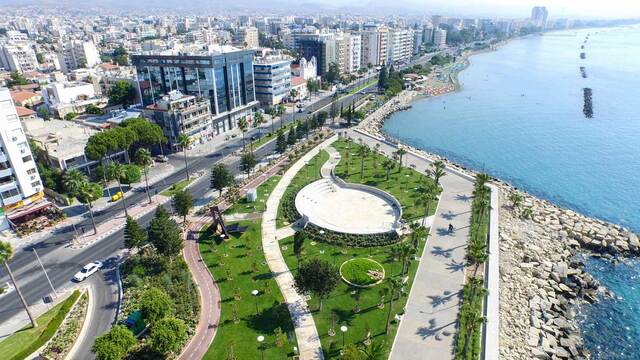.
By Nicole Grivas
In recent years the Airbnb phenomenon has gained international popularity bringing a positive economic impact in many cities around the world.
The rental platform has become very popular to many travellers coming to Cyprus either for business or leisure stays, giving a boost simultaneously to the tourism industry of the country.
As the Cypriot economy is positively affected by this, it can be argued that Airbnb caused “damage” to the hotel and property market of the island.
With the effects of the crisis still present, those best placed to invest in property are often foreigners who are looking to commercialise their investment rather than live in it.
This is highly popular in the coastal cities of Cyprus, mainly Limassol and Famagusta area. Most of the properties bought by foreigners are then converted into short-or-long-term rental homes creating the global trend of accommodation options offered by platforms.
It has become popular in the modern world, when travelling, to rent homes through an online platform, rather than booking a hotel room, as it is relatively cheaper and faster to reserve compared to the hospitality sector.
With competition between hotels and Airbnb accommodation on the rise, the real question is why do long-time hotel fans opt nowadays to book Airbnb?
In most surveys, the common answer is the price. Hotel rooms are often far more expensive compared to renting apartments which are especially ideal for younger generations or families who travel together.
Echoing the massive expansion of Airbnb in cosmopolitan cities around the world, apartments are increasingly being bought and converted into short-term rental properties, giving locals little or no chance to buy, or rent long-term.
Apart from Airbnb, locals tend to choose more than one platform to list their properties on, instead of living in them or selling them. These platforms include Booking.com, HomeAway and TripAdvisor among others.
Management companies are also leasing more of Cyprus’s properties in the market on these platforms, the most common one being Airbnb. Many of these homes are located on the coast line of Larnaca, Limassol and Paphos.
Property management has boomed in recent years, driven by the constantly expanding ‘home-sharing’ trend. Hotels, on the other hand, find it impossible to compete, as the daily operational cost does not allow them to enter this price war. Usually, the hotels that are affected are the mid-range (3 or 4 stars) ones as the majority offer just a room without breakfast.
Even though the price is the most critical factor in any purchase, including travel, another reason for choosing a rental stay is that young travellers want to experience the “local vibe” through their accommodation.
An apartment located in a “hip” area in the city or a “cosy” Seaview beach apartment is much more attractive than a hotel brand which its location and concept is identical all over the world.
The traveller hence has the chance to live like a local by staying at a local’s place making the stay more practical, simple and closer to budget.
Arguably, buying property and then converting it in a rental can be a good thing for Cyprus and help promote the influx of tourists hence enhancing the tourism industry.
The price competition from hotels, the local feeling and variety of other experiences, brings rentals to a more competitive, productive and greater pick for tourists.
While a hotel inspires luxury, commodity, wellness and hospitality (which people will prefer), the trend we observe in recent years is that young travellers, will rather not choose the expensive all-board experience and will rather simply rent cheaper.
This is arguably why Airbnb has become the number one website and short-term rental platform in the world with over 150 million users worldwide and offering listings in over 191 countries.
It not only gives a vast variety of homes to pick from but also provides options for holidaymakers to plan their trip in advance on the platform with certain activities for their visit.
Airbnb benefits vary from cheap accommodation to tourism diversification, meanwhile, promoting areas that need more visitors and providing the traveller with the opportunity to save money and perhaps stay longer at the destination.
The economic and social benefits of this are not only to travellers but also to the community and the government of Cyprus, especially at a time where the island’s tourism is under pressure from other attractive destinations.
All above said, the home-sharing experience is likely to gain higher ground as consumers are aware of its benefits.
It is important for the hotel industry to find creative ways to compete with Airbnb and similar platforms in order to reach the practical and easy demand of customers.
The price is an example which hotels can consider instead of spending millions on refurbishments and expansions.
As the Airbnb phenomenon grows, so do the arguments and complications around it. Regulating properties and keeping guests safe and happy is not always an easy task.
With the number of Airbnb listings rising in Cyprus, the deputy Tourism MInistry plans to introduce a number of measures to control regulations and problems associated with the platform in meeting the various needs of stakeholders.
The ministry of finance and travel agents will also need to examine practices of home sharing as to secure fees and taxation directly paid to the government.
With this introduced, rentals then need to be screened and inspected with safety and hygiene checks before they are available to visitors.
Currently all properties in Cyprus, used for accommodating travellers, must secure a licence for meeting certain criteria. All unlicensed properties can only be utilized for domestic use and not touristic.
Overall, the era of an all-inclusive hotel package is arguably fading away. Their performance and price will have to change for them to “stay alive”, considering they charge a stay including many services (breakfast, pool, gym, cleaning service ext.) which the average traveller will not use.
Although hotels have spent millions on upgrades and renovations, we can safely say that the “experience” is the number 1 key to the product.
Understanding that Airbnb is in competition with the hotel industry, it also brings about a big boost of visitors that the tourism sector in Cyprus benefits from.
Overall, the short-term rental phenomenon is here to stay and is one which satisfies the consumer and the supplier in all aspects.
The new generation of travellers are now looking for a pure, simpler and authentic experience when planning their trip abroad and looking to spend their money and time creatively.
Likewise, foreign Investors will think the same when buying property in the city where the demand of short-term rent is high and popular.
Cyprus is a place where investments are encouraged and despite the erosion of hotel stays, the customer support and level of short-term rentals should improve and stay high. This will attract tourists and benefit the island’s economy further.
The writer is Corporate Affairs Associate at Delfi Partners & Company







